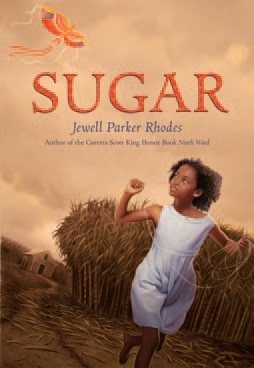 In 1870, slavery had already been abolished in the U.S. But many people who were formerly enslaved didn't have the means or the motivation to go north in search of other opportunities, and so they continued on in the only life they had ever known, living in the same shacks they lived in as slaves, and working for the same man who owned them as slaves. Sugar is a 10-year-old girl who lives and works with other formerly enslaved people on the River Road sugar cane plantation in Louisiana.
In 1870, slavery had already been abolished in the U.S. But many people who were formerly enslaved didn't have the means or the motivation to go north in search of other opportunities, and so they continued on in the only life they had ever known, living in the same shacks they lived in as slaves, and working for the same man who owned them as slaves. Sugar is a 10-year-old girl who lives and works with other formerly enslaved people on the River Road sugar cane plantation in Louisiana.
With a good number of formerly enslaved workers leaving the plantation, Mister Wills, the owner, decides to hire Chinese workers to address the labor shortage. The original River Road folks are anxious, afraid they will lose their jobs to the Chinese workers.
Sugar has the open-hearted, open-minded wisdom of a child, and she doesn't understand why she isn't allowed to play with Billy Wills, the owner's son with whom she gets along splendidly. She also doesn't understand why she isn't supposed to befriend the new Chinese workers, who fascinate her.
Admittedly, I felt a bit wary going into this book. On the one hand, the Chinese people were referred to as "Chinamen" - a derogatory term - and their queue-styled hair and Eastern-styled clothing marked them as "different". Would this book reinforce the "perpetual other" stereotype of Asians? Yet, back then, Chinese people really were completely unknown to many Americans, and the use of "Chinamen" is historically accurate. In the end, I think the author did a good job portraying the Chinese workers as different, but not "exotic"; just people, like everyone else, working hard for a living. About half-way through the book, Sugar learns to say "Chinese" instead of "Chinamen", but I'm not sure it was effectively made known that "Chinamen" is actually offensive, and using "Chinese" is not just a matter of preference.
Sugar and Billy, together with "Beau" - the youngest Chinese worker - eventually bring together the River Road community so that everyone understands everyone else just a little better.
I really enjoyed this story, and its peek into a little-known part of U.S. history. I gave this book just shy of 5 stars because the short, matter-of-fact sentences eventually became tiresome and choppy, though they started out as a simple way to convey Sugar's childlike thinking.


No comments:
Post a Comment